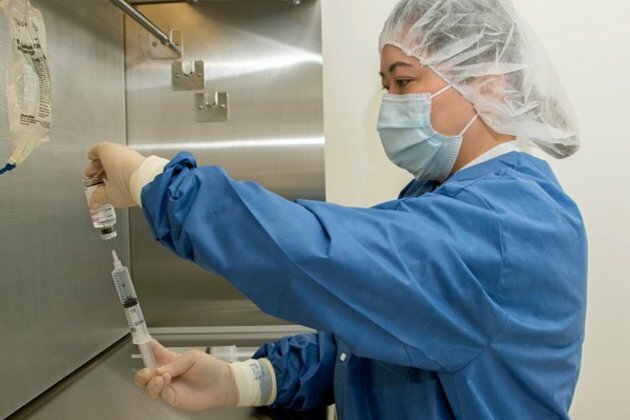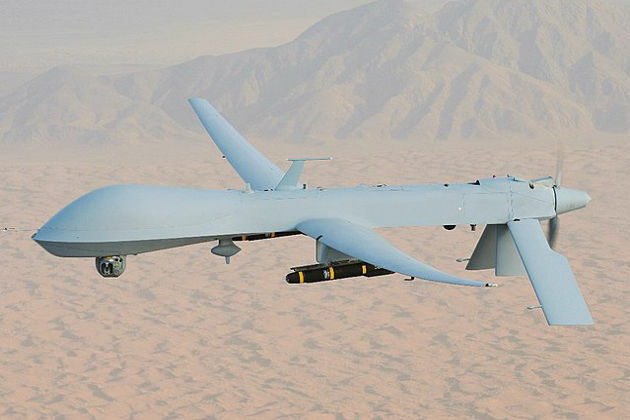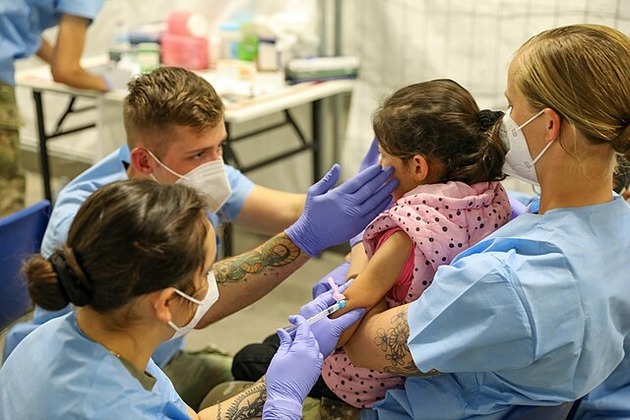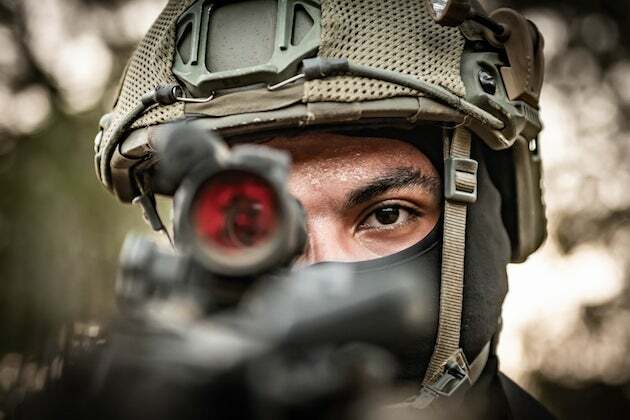Re-engineering antibodies may bring relief amid COVID-19 pandemic
ANI
08 Aug 2020, 16:33 GMT+10

Texas [USA], August 8 (ANI): As there is a surge in the COVID-19 cases across the globe, people are heading back to antibody tests to find out whether they have been exposed to the coronavirus that causes the disease.
Antibody tests look for the presence of antibodies, which are specific proteins made in response to infections. Antibodies are disease-specific. For example, measles antibodies will protect you from getting measles if you are exposed to it again, but they won't protect you from getting mumps if you are exposed to mumps.
"Antibodies are important because they prevent infection and heal patients affected by diseases," said Victor Padilla-Sanchez, a researcher at The Catholic University of America in Washington D.C.
"If we have antibodies, we are immune to disease, as long as they are in your system, you are protected. If you don't have antibodies, then infection proceeds and the pandemic continues," added Sanchez.
This form of foreign-antibody-based protection is called passive immunity -- short-term immunity provided when a person is given antibodies to a disease rather than producing these antibodies through their own immune system.
"We're at the initial steps of this now, and this is where I'm hoping my work might help," Padilla-Sanchez said.
Padilla-Sanchez specializes in viruses. Specifically, he uses computer models to understand the structure of viruses on the molecular level and uses this information to try to figure out how the virus functions.
Severe acute respiratory syndrome (SARS) was the first new infectious disease identified in the 21st century.
This respiratory illness originated in the Guangdong province of China in November 2002. The World Health Organization identified this new coronavirus (SARS-CoV) as the agent that caused the outbreak.
Now we're in the middle of yet another new coronavirus (SARS-CoV-2), which emerged in Wuhan, China in 2019. COVID-19, the disease caused by SARS-CoV-2, has become a rapidly spreading pandemic that has reached most countries in the world. As of July 2020, COVID-19 has infected more than 15.5 million people worldwide with more than 630,000 deaths.
To date, there are not any vaccines or therapeutics to fight the illness.
Since both illnesses (SARS-CoV and SARS-CoV-2) share the same spike protein, the entry key that allows the virus into the human cells, Padilla-Sanchez's idea was to take the antibodies found in the first outbreak in 2002 -- 80R and m396 -- and reengineer them to fit the current COVID-19 virus.
A June 2020 study in the online journal, Research Ideas and Outcomes, describes efforts by Padilla-Sanchez to unravel this problem using computer simulation. He discovered that sequence differences prevent 80R and m396 from binding to COVID-19.
"Understanding why 80R and m396 did not bind to the SARS-CoV-2 spike protein could pave the way to engineering new antibodies that are effective," Padilla-Sanchez said. "Mutated versions of the 80r and m396 antibodies can be produced and administered as a therapeutic to fight the disease and prevent infection."His docking experiments showed that amino acid substitutions in 80R and m396 should increase binding interactions between the antibodies and SARS-CoV-2, providing new antibodies to neutralize the virus.
"Now, I need to prove it in the lab," he said.
For his research, Padilla-Sanchez relied on supercomputing resources allocated through the Extreme Science and Engineering Discovery Environment (XSEDE). XSEDE is a single virtual system funded by the National Science Foundation used by scientists to interactively share computing resources, data, and expertise.
The XSEDE-allocated Stampede2 and Bridges systems at the Texas Advanced Computing Center (TACC) and Pittsburgh Supercomputer Center supported the docking experiments, macromolecular assemblies, and large-scale analysis and visualization.
"XSEDE resources were essential to this research," Padilla-Sanchez said.
He ran the docking experiments on Stampede2 using the Rosetta software suite, which includes algorithms for computational modelling and analysis of protein structures. The software virtually binds the proteins then provides a score for each binding experiment.
"If you find a good docking position, then you can recommend that this new, mutated antibody should go to production," said Sanchez.
TACC's Frontera supercomputer, the 8th most powerful supercomputer in the world and the fastest supercomputer on a university campus, also provided vital help to Padilla-Sanchez. He used the Chimera software on Frontera to generate extremely high-resolution visualizations. From there, he transferred the work to Bridges because of its large memory nodes.
"Frontera has great performance when importing a lot of big data. We're usually able to look at just protein interactions, but with Frontera and Bridges, we were able to study full infection processes in the computer," he said. Padilla-Sanchez's findings will be tested in a wet lab. Upon successful completion of that stage, his work can proceed to human trials.
Currently, various labs across the world are already testing vaccines.
"If we don't find a vaccine in the near term we still have passive immunity, which can prevent infection for several months as long as you have the antibodies," Padilla-Sanchez said. "Of course, a vaccine is the best outcome. However, passive immunity may be a fast track in providing relief for the pandemic," said Padilla-Sanchez. (ANI) Share
Share
 Tweet
Tweet
 Share
Share
 Flip
Flip
 Email
Email
Watch latest videos
Subscribe and Follow
Get a daily dose of Pittsburgh Star news through our daily email, its complimentary and keeps you fully up to date with world and business news as well.
News RELEASES
Publish news of your business, community or sports group, personnel appointments, major event and more by submitting a news release to Pittsburgh Star.
More InformationPennsylvania
SectionTravelers can now keep shoes on at TSA checkpoints
WASHINGTON, D.C.: Travelers at U.S. airports will no longer need to remove their shoes during security screenings, Department of Homeland...
MLB roundup: Garrett Crochet tosses first shutout in Red Sox win
(Photo credit: Eric Canha-Imagn Images) In his 51st career start, Garrett Crochet accomplished two feats in one dominant outing:...
Jackson Merrill snaps slump with 2 HRs to help Padres edge Phillies
(Photo credit: David Frerker-Imagn Images) Manny Machado's sacrifice fly snapped a tie in the bottom of the seventh inning on Saturday...
Union maintain mastery of the Red Bulls with 2-0 victory
(Photo credit: Kyle Ross-Imagn Images) Indiana Vassilev and Bruno Damiani each scored first-half goals for the Philadelphia Union,...
Byron Buxton hits for the cycle, Twins top Pirates
(Photo credit: Brad Rempel-Imagn Images) Byron Buxton hit for the cycle for the first time in his career, and the Minnesota Twins...
Padres option RHP Ryan Bergert to give bullpen a boost
(Photo credit: David Frerker-Imagn Images) The San Diego Padres optioned effective right-handed starter Ryan Bergert to Triple-A...
International
SectionHouthis attack cargo ship in Red Sea, raising maritime safety fears
DUBAI, U.A.E.: A cargo ship flagged under Liberia, known as the Eternity C, sank in the Red Sea following an attack executed by Yemen's...
Trump administration restarts Ukraine arms deliveries
WASHINGTON, D.C.: The Trump administration has started sending some weapons to Ukraine again, just a week after the Pentagon told officials...
From France’s shores, desperate migrants look to reach British coast
ECAULT BEACH, France: On clear days, the white cliffs of the United Kingdom, are visible from northern France, where men, women, and...
CDC: US records 1,288 measles cases, most since 1992 outbreak
ATLANTA, Georgia: The United States is facing its worst measles outbreak in more than three decades, with 1,288 confirmed cases so...
Gaza War sucking life out of an Israeli generation
In the past month alone, 23 Israeli soldiers have been killed in Gaza—three more than the number of remaining living hostages held...
Faulty IT system at heart of UK Post Office scandal, says report
LONDON, U.K.: At least 13 people are believed to have taken their own lives as a result of the U.K.'s Post Office scandal, in which...













